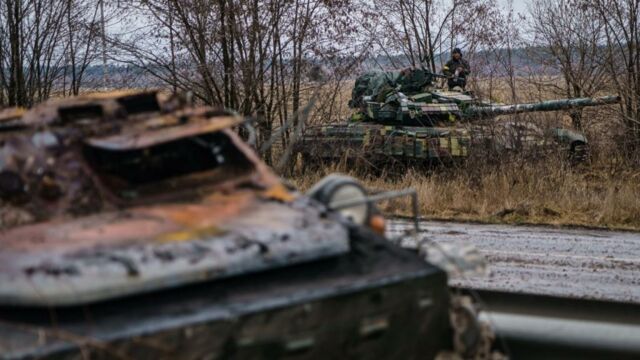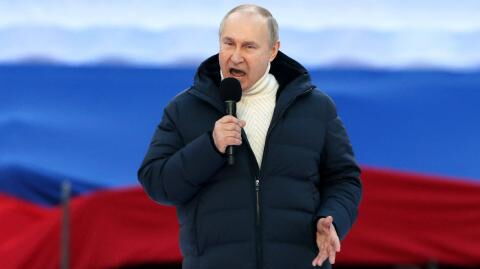It was not seen coming but the changing climate could be one of the main allies of Ukraine against Russia. Arriving a little earlier this year due to global warming, rasputitsa is indeed a formidable force for military vehicles trying to penetrate Ukrainian soil.
Discover our latest podcast
What is rasputitsa?
This phenomenon is well known to people living in Ukraine, Russia, and Belarus. It usually occurs in spring when the temperature drops and the snow melts, turning most of the country's roads into giant slushy fields.
The Russian army had anticipated this phenomenon by launching its assault while it was still winter, but the current thaw caused by global warming has brought the phenomenon forward by a few weeks.
Indeed, there are countless photos and videos where we see Russian tanks entangled in the mud, forcing soldiers to abandon them on the spot. Ukrainian military analyst Mykola Beleskov told AFP:
There have already been many situations in which Russian tanks and other vehicles have passed through the fields and have been stuck. The soldiers were forced to abandon them and continue on foot.
Т-90 и артиллерийская самоходная установка застряли на Сумщине.
— ІнфоВійська України/Ukraine (@i_army_org) February 28, 2022
Солдаты разбежались 😎👍 pic.twitter.com/HLM5lp9wjO
Read more:
⋙ War in Ukraine: Horrible images from bombings on a maternity and children's hospital are circulating
⋙ War in Ukraine: Only these people could stop Vladimir Putin's devastating mission
⋙ War in Ukraine: 3 ways the war might end
The victims of rasputitsa: Napoleon and the Nazis
These very fertile black lands, which contributed to the agricultural wealth of Ukraine, have already harmed other armies which have tried to invade the region. Napoleon's troops had the painful experience of being delayed during their retreat from Russia at the end of 1812 to the point of being caught up by the rigours of winter and suffering numerous losses. This would later lead to the fall of the Emperor.
The Nazis who tried to take Moscow during the Second World War also suffered the same fate, and had to wait another winter to launch their offensive, which ultimately failed. The rasputitsa also slowed down the Soviet troops during their counter-offensive in 1943.
For the Russian troops, Mykola Beleskov believes:
The situation will get worse as the weather warms up and the rains begin.
He concludes:
They will be grounded.















